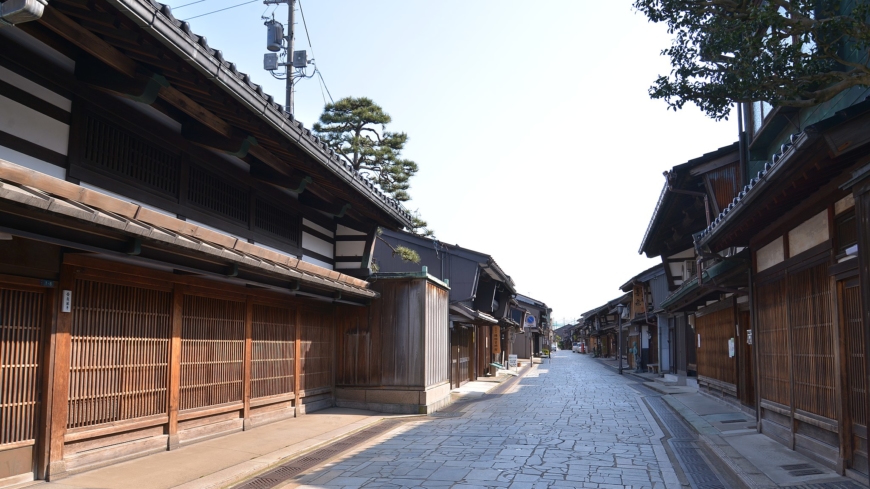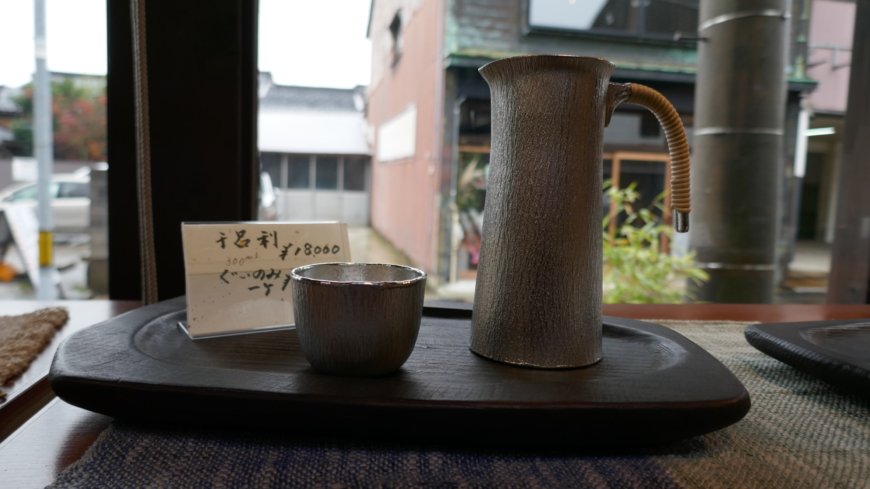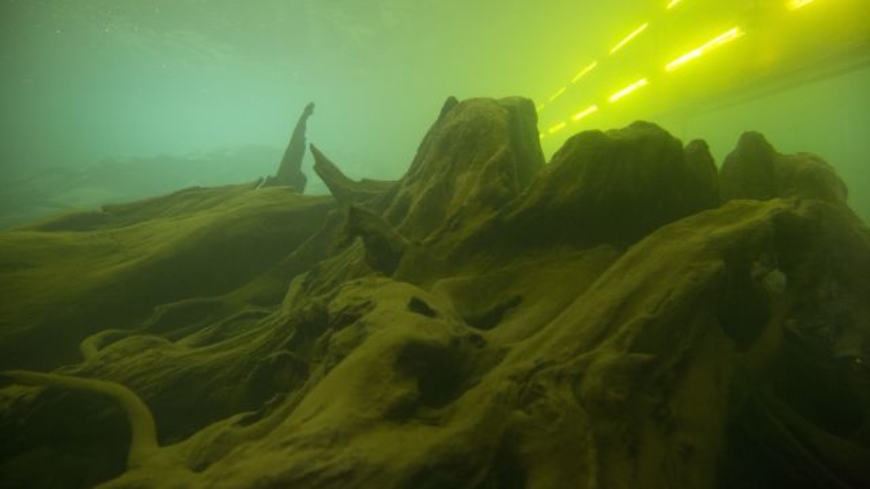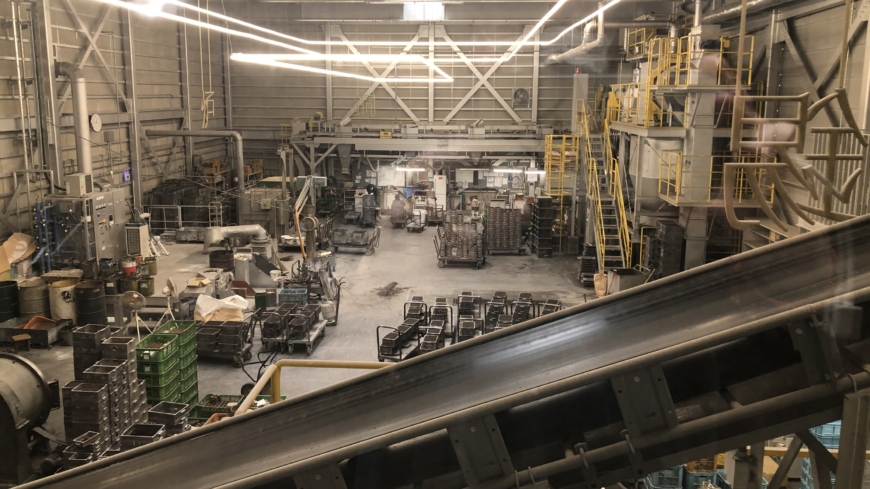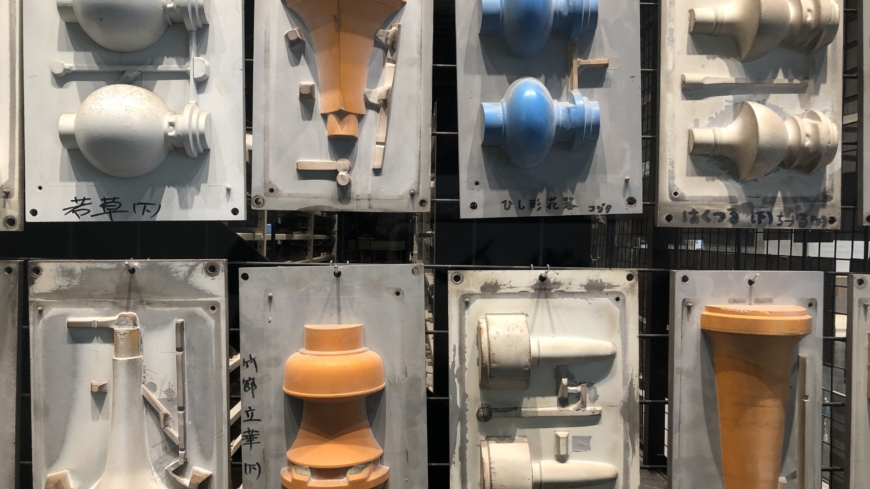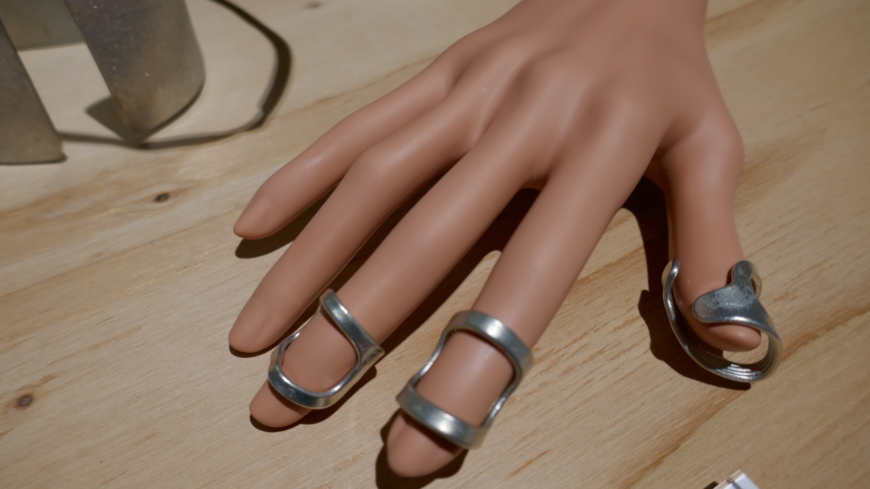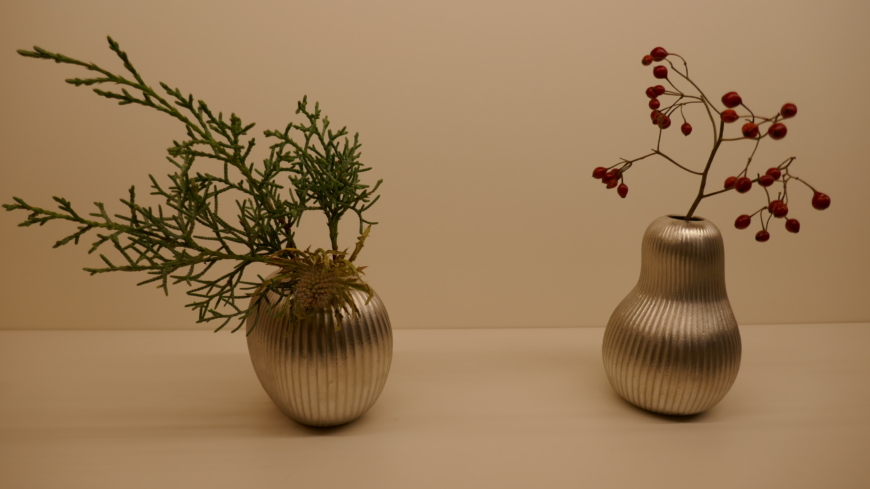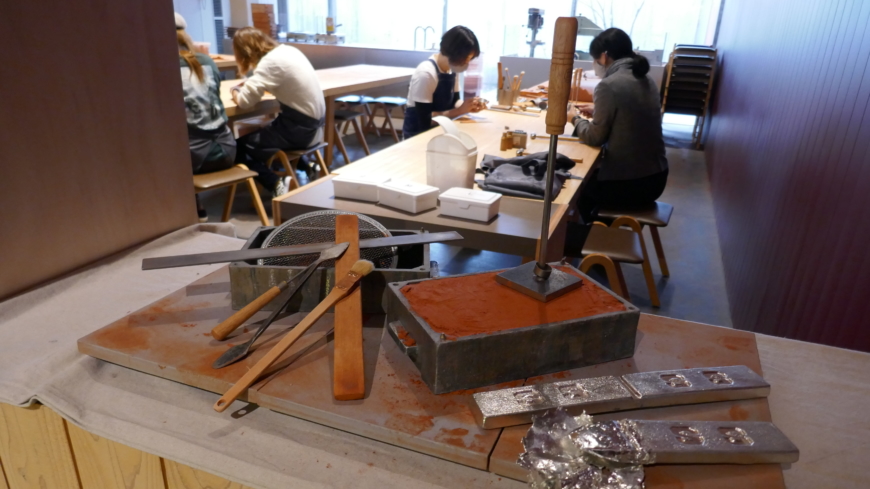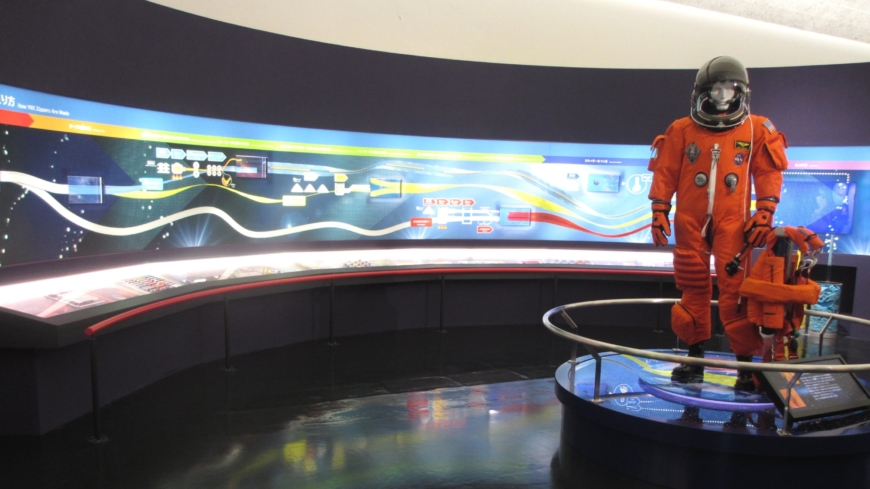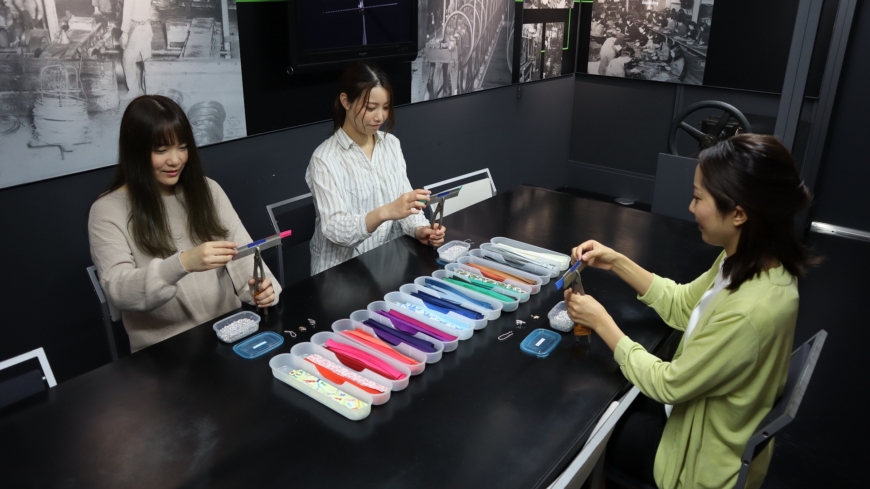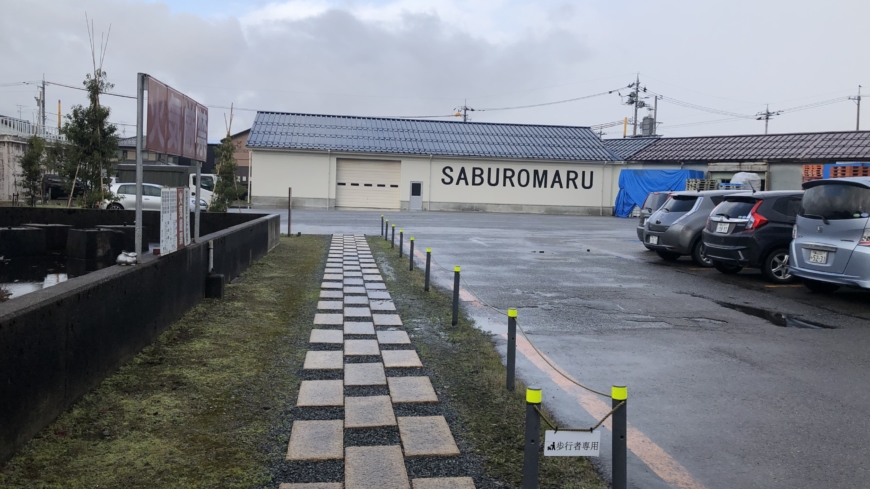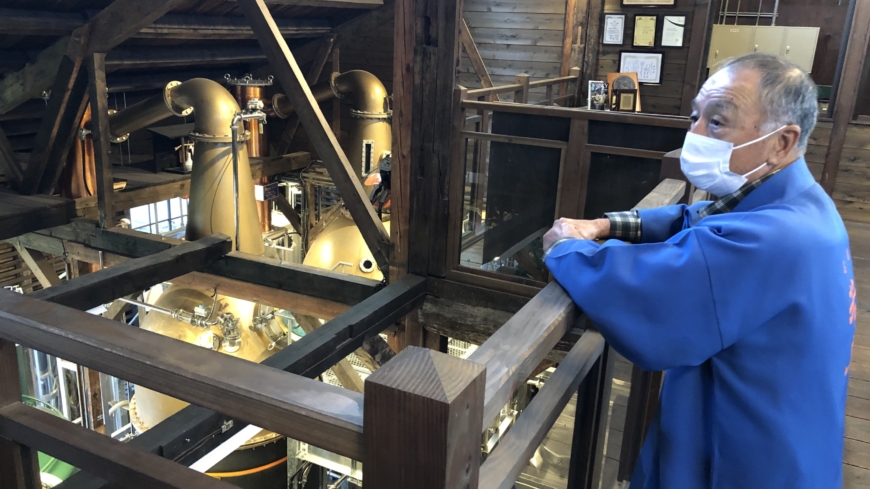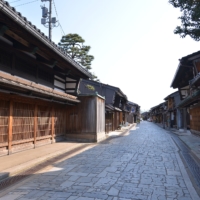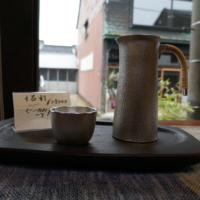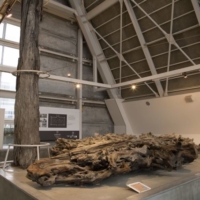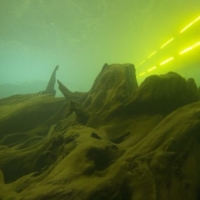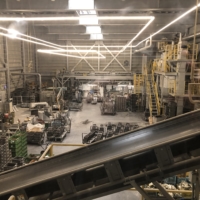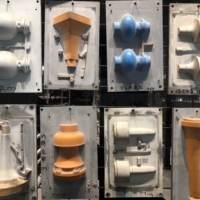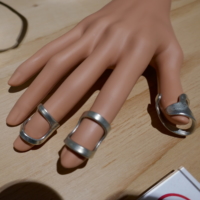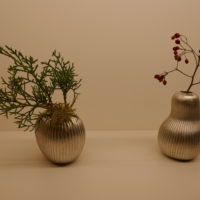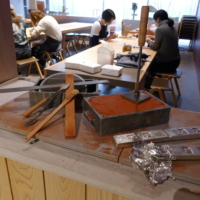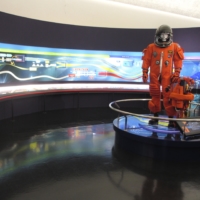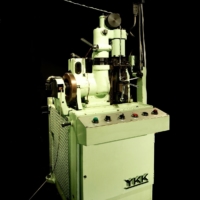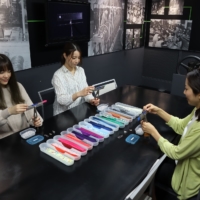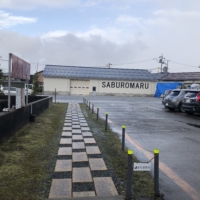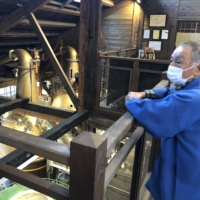The circular rings found in cut tree trunks are said to age a tree and tell its story. A visit to the Uozu Buried Forest Museum in Uozu, Toyama Prefecture, also reveals how surprisingly adaptable nature can be. The museum, through its exhibits and housing the impressive, preserved remains of cedar trees from a forest engulfed and buried in floodwaters roughly 2,000 years ago, offers a rich insight into the effects of an event borne through local climate change. Some of these “trees from the underworld” were said to have been 500 years old at the time of the disaster. Submerged in tanks of the area’s pristine waters and remarkably devoid of algae and other diseases, the buried trees became home to a diverse microbial community, testament to the famed quality of Toyama’s water.
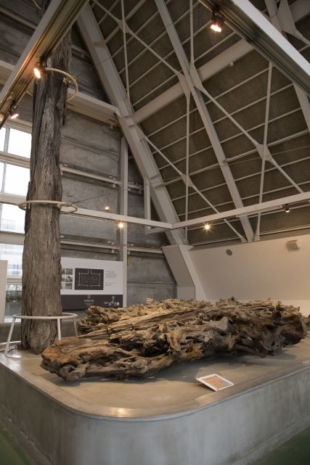
Innovation, flexibility and adapting to change are commonly found characteristics in businesses belonging to some of Toyama’s oldest industries.
Much of the Kanayamachi (metalwork district) in Takaoka speaks of the area’s history as quarters for Japan’s best metalworkers, applying their skills in bronze making, metalware and casting at the invitation of feudal lord Maeda Toshinaga over 400 years ago. Walking along Kanayamachi’s cobbled streets, latticed storefronts hint at businesses past, but there’s also a slow-burning gentrification of the area, where new ventures — galleries, restaurants and cafes — support long-established firms. Visitors can tour the Risaburo Studio Foundry to see age-old bronze casting techniques. Bronze foundry Yotsukawa Works exemplifies the straddling of old and new in its brands, one brand associated with incense and tea wares, the other, modern-day interior items.
Nousaku, also based in Takaoka, was founded in 1916. Originally a manufacturer of Buddhist ritual objects and traditional Japanese tea sets, Nousaku now makes beautiful home accessories using techniques passed down through generations. Most famous is the company’s iconic, mesh-like flexible pure tin basket “KAGO” that is sold at the MOMA Design Store in New York City. Nousaku offers workshops in tin casting using traditional sand-casting methods, as well as factory tours where visitors can observe manufacturing processes. Tableware made of 100% tin and wind chimes are just a couple of product lines Nousaku specializes in. Many of the firm’s ideas, advanced casting techniques, expert knowledge and craftsmanship have been passed down through generations over 100 years.
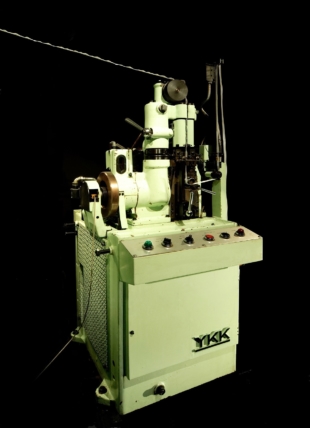
Ideas of adaption and innovation are at the core of the Kurobe-based YKK Group founded by Tadao Yoshida. The company is renowned as the world’s leading brand of zippers and fasteners. It boasts a machinery and engineering division, and architectural products business. A visit to YKK Center Park reveals not only the firm’s groundbreaking technological developments but also the remarkable vision of YKK’s founder. Most displays are bilingual, nodding to Yoshida’s experiences and the company’s expansion overseas. Of note are zipper-making workshops, where participants can indulge in the handicraft of making fasteners before machines were invented and made such tasks automated. Parkland surrounding the center, the Kurobe Wood, is populated by local trees, while adjacent parkland features 180 cherry trees representing 14 species.
Japanese whisky is revered worldwide, but behind Toyama Prefecture’s Wakatsuru Saburomaru Distillery, the only whisky distillery in the Hokuriku region, lies a fascinating backstory. The distillery is run by Wakatsuru Shuzo, a sake brewer established in 1862. The firm began producing whisky after World War II when rice was rationed, using crystal clear spring waters from the Tonami Plain. More recently, a refurbishment of the distillery became possible through crowdfunding efforts instigated by the founder’s great-grandson. In a nod to Toyama’s industrial history, the cast stills used to distill the whisky were made by a Takaoka firm that makes temple bells. Tours of Wakatsuru Saburomaru Distillery include tastings of whisky, sake and other drinks.



